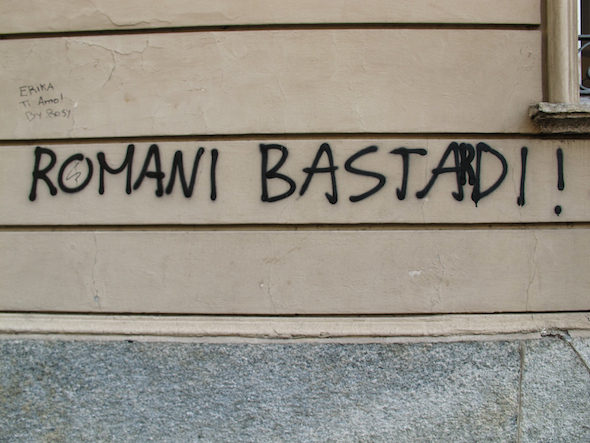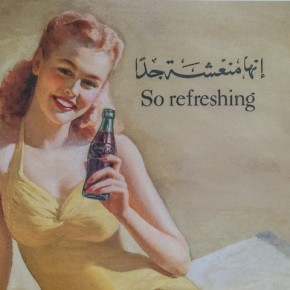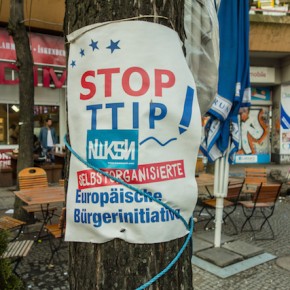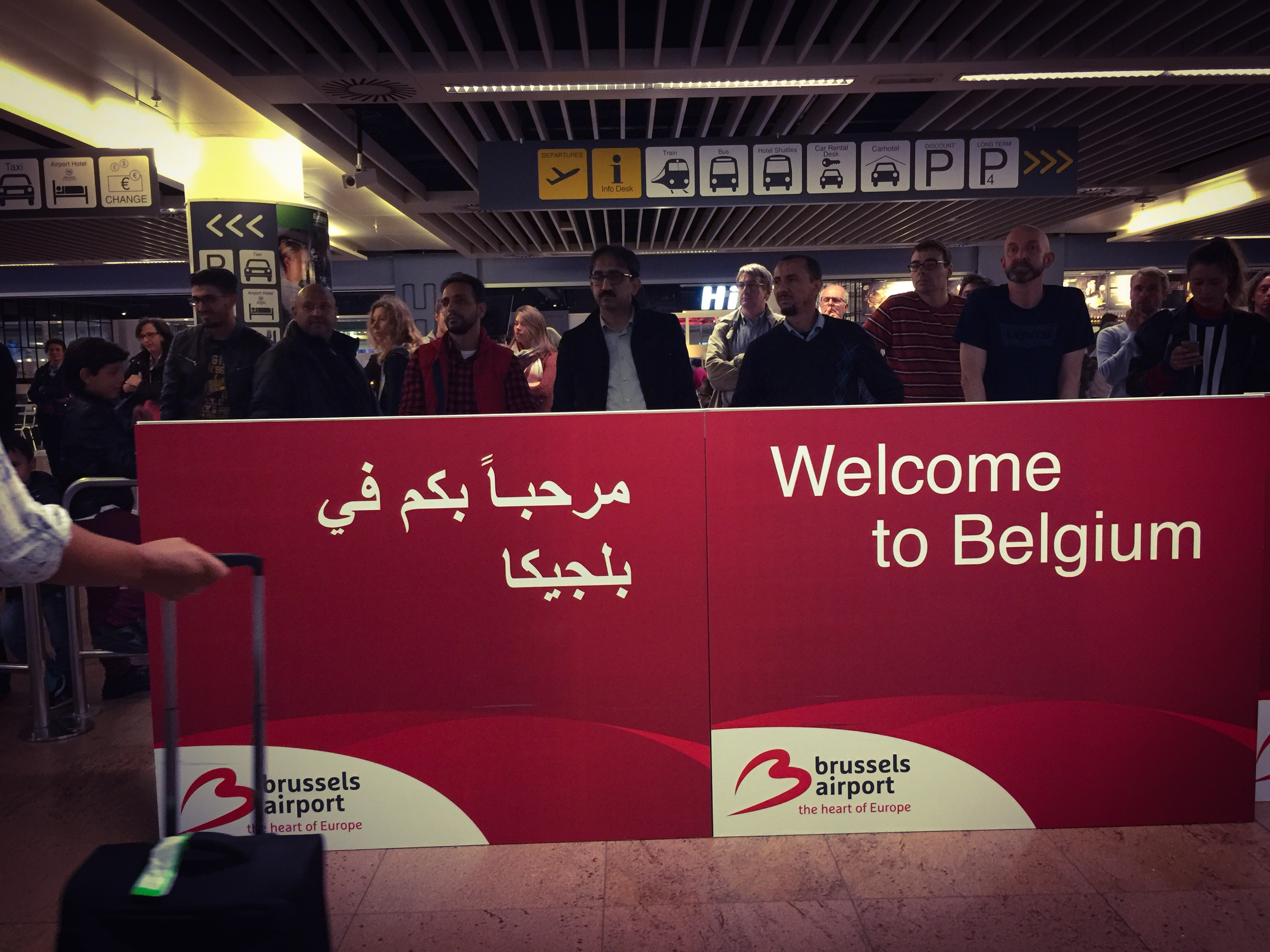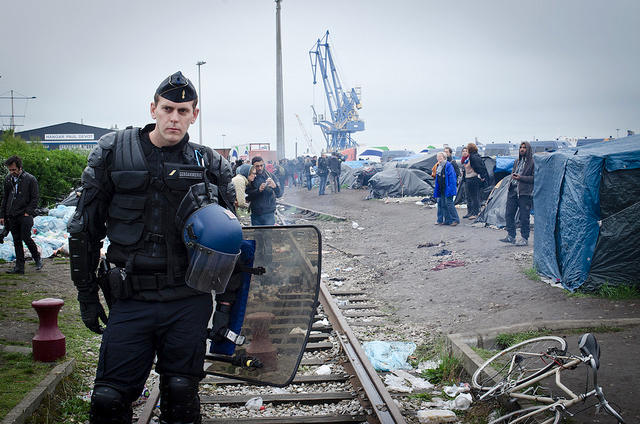The horrifying quality of the attacks at the headquarters of Charlie Hebdo and at the Hyper Cacher market in Porte de Vincennes continues to roil Europe. The immediate aftermath saw outpourings of support for the periodical, in particular, and for “free speech” in general, although the definition of the latter was (and continues to be) a matter of some debate. While the content of the cartoons published in Charlie Hebdo, often culturally chauvinistic, sometimes overtly racist, raised concerns in some quarters, these were generally muted, given frequent counter-assertions that any such criticism amounted to a blaming of the victims.
The murders committed by Amedy Coulibaly, lacking even the threadbare justification of defense of the Islam against defamation, were simple Jew-hating, but their coordination with the actions of the Kouachi brothers served to locate the whole complex of events astride a conflict-ridden intersection of the French republican laïcité, and the anger of the banlieusards, which is always percolating under the surface, but has burned with greater intensity since the days of the Arab Spring. On a broader cultural and political level, the attacks were another moment in the complex relationship between Europe, North Africa, and the Middle East, running from the toxic after-effects of Western colonialism, to European memory of the Holocaust.
The political consequences of the attacks, which have been the source of much hand-wringing on the left, have been quite varied. It remains to be seen whether the putative bump in fortunes of the National Front will actually pan out. Increased support for the PEGIDA movement in Germany seems to have been counterbalanced by the departure of the movement’s leader Lutz Bachmann, whose Facebook page featured comments in which he called immigrants “animals” and “scumbags” as well as a photo of Bachmann wearing a Hitler moustache. Apart from speculation about changes in the balance of political forces in European democracies, a more concrete outcome been an uptick in the number of attacks against Muslims, particularly in France.
Analysis of the atrocities has focused both on the attack on free speech implied in the assault on the staff of Charlie Hebdo, and on the expansion of violence against Jews, of which the attack on the Hyper Cacher was an element. Both are vexing issues in the West (a term which one uses advisedly.) The formal freedom to espouse any position is commonly viewed as central to the democratic project. The motto (frequently attributed to Voltaire but more likely coined by a later biographer) “I disapprove of what you say, but I will defend to the death your right to say it” sums up liberalism’s self-effacing rhetoric with regard to freedom of speech. And thus, although the cartoons published in Charlie Hebdo were often culturally insensitive and occasionally overtly racist (in addition to being neither very clever nor very funny,) defenders of the right of free speech are compelled to defend them, or at least to reaffirm the right of people to publish them, considering the utterly barbaric tactics employed by those on the other side.
But free speech has its limits. Scholars of American system are wont to note that shouting “Fire!” in a crowded theater (when there is in fact no fire) exceeds the bounds of protected speech, ostensibly because the danger that results is not counterbalanced by any even theoretical positive good. Underlying this prohibition is the certainty in the case described that fire is, indeed, lacking. In other cases, those in which the underlying premise is not the sort of thing that can be established with the certainty of a counterfactual premise or a mathematical result, the hard lines of the issue become blurred. “Truths” and “lies” are not always empirically testable. Thus, for instance, a law in the U.S. state of Ohio against publishing falsehood in the context of political campaigns was struck down on First Amendment grounds.

In his decision, Judge Timothy S. Black wrote, “Lies have no place in the political arena and serve no purpose other than to undermine the integrity of the democratic process. The problem is that, at times, there is no clear way to determine whether a political statement is a lie or the truth.” Putting aside for a moment that the particular case in question dealt with a situation in which the statement in question dealt with a matter of demonstrable fact (did Representative A vote for or against Measure B which is a matter of record,) the underlying point is crucial. Where there is uncertainty, and where immediate physical harm is not likely to ensue, the presumption is in favor of the speaker.
This has become a matter of special concern, as in the wake of the attacks (and in with particular reference to their anti-Semitic dimension) a group of Jewish community leaders and former EU heads have called for, among other things, the outlawing of antisemitism. This basis for this is a document entitled A European Framework National Statute for the Promotion of Tolerance produced by the European Council on Tolerance and Reconciliation, a non-governmental organization based in Paris. The document makes for interesting reading. Pace its professed commitment to “tolerance,” it is noted in Section 4 (Ordre public) that “given the need to fight crime, persons may not be allowed to cover their faces in public.”
This is clear reference to the noxious headscarf debate of a couple of years ago in France, paired with a rather disingenuous justification for a policy that in practice affects only one community in Europe. It is further noted that “city planning and zoning rules may override an attempt to build a place of worship on a particular site. Although it is rather difficult to imagine applying this practice to churches and synagogues, as well as mosques, one can do so at least for the purpose of further discussion. A clearer statement of orientation comes in the next section in which it is stated that, “[t]olerance does not mean a group can segregate itself from society as a whole, repudiating the need to interface with other groups.”
The larger problem that this document raises is that it is very hard to see how it is that its prohibitions can be squared with the sort of commitment to unlimited free speech that is the basis for the liberal excuses for cultural chauvinism (and occasional racism) found in the pages of Charlie Hebdo. The task that the document sets for itself, as enumerated in Section 2, is,
[To] take concrete action to combat intolerance, in particular with a view to eliminating racism, colour bias, ethnic discrimination, religious intolerance, totalitarian ideologies, xenophobia, anti-Semitism, anti-feminism and homophobia.
Both anti-Christianity and Islamophobia are included under the category of religious intolerance. Those publicly engaging in such practices could be adjudged to being guilty of “group libel,” defined in Section 1 as, “defamatory comments made in public and aimed against a group as defined in paragraph (a) – or members thereof – with a view to inciting to violence, slandering the group, holding it to ridicule or subjecting it to false charges.” Such guilt would then, according to Section 7, be the subject of penal sanctions.

This draft law is yet another addition to the list of those in European countries which criminalize certain types of public expression related to opinion. More than a dozen European states have laws criminalizing the denial or minimization of genocide, or other forms of war crimes. In some countries, Germany and Austria in particular, these laws relate directly to the Nazi past. In Eastern Europe, such as in Hungary and the Czech Republic, these laws also include denying or minimizing the crimes of the Communists. In France it is both illegal to deny or minimize the Holocaust and the Turkish genocide of the Armenians, although it is not entirely clear why France should be the special defender of this heritage.
The laws themselves are generally well-intentioned. No reasonable person wants to see the revival of either Fascism or Stalinism, the two great European political murder cults. But the question remains as to whether the damage to the ethic of intellectual freedom is actually merited by the consequences of the laws. To take one example, the notorious Holocaust denier/minimizer David Irving was jailed for a year in Austria under its Holocaust denial law. While in absolute terms, one has no problem with an odious figure like Irving spend a year banged up, it is by no means clear that this has a salutary effect vis à vis general understandings of, or attitudes toward, the Holocaust.
The central problem is this: making it illegal to hold and espouse a particular view (at least when it falls short of actual incitement to violence) merely calls the intellectual or evidentiary soundness of that view into question. While Holocaust deniers are repugnant, illegalizing their ideas creates the impression that something is needed to defend the correctness of mainstream historical accounts of the events, other than the gigantic amounts of evidence that exist. To return once again to the case of David Irving, the systematic debunking his ideas in the context of the Lipstadt trial (a thorough account of which can be found in Richard Evans’s Lying About Hitler) arguably did much more to secure the foundations of a defensible account of the Holocaust than putting Irving in jail.
Some may argue, particularly in light of the horrific history of European fascism, that allowing these views to be expressed about amounts to allowing the shouting of “Fire!” in a crowded theater, while others will hold (and not without some justice) that for the hardcore believers, no amount of evidence will be enough to change their views. But the fight against distortions of history must be carried on at the level of ideological and historical contestation. To make it a matter of law is to cut away one of the strongest supports of rational, substantive, and civilized accounts of history.
As similar problem may be cited in the case of the European Framework National Statute for the Promotion of Tolerance. Once again, this is a generally well-meaning document, even if it often fails to correct for the anti-Islamic bias common among the educated classes in Europe and North America. Clearly, incitement to violence can legitimately be met with the same sort of intolerance that it itself implies, since those responsible can hardly demand reciprocal tolerance when they promote violence. But the range of acts criminalized by the draft statute is far too wide. If it were fairly applied in France, it almost certainly has to be applied to Charlie Hebdo itself, thus vitiating the free speech argument so often evinced in the paper’s defense.
More importantly, legally silencing ideas is not the same as restricting their spread, and there is simply no means of enforcement that can make it so. The wide range of uncivilized beliefs in the public spheres of the West, from anti-Semitism, to xenophobia, to religious extremism, misogyny and beyond, must be combated primarily at the level of ideas, not in the first instance by means of laws. To accede to the latter approach is nothing more than an admission of civilizational failure, other evidences of which are not far to be sought. It is incumbent on those with an interest in sound science and humanistic knowledge to fight their battles in a way that reflects and confirms their ideals. To do otherwise is to admit defeat at the outset.
Photographs courtesy of Joel Schalit.
